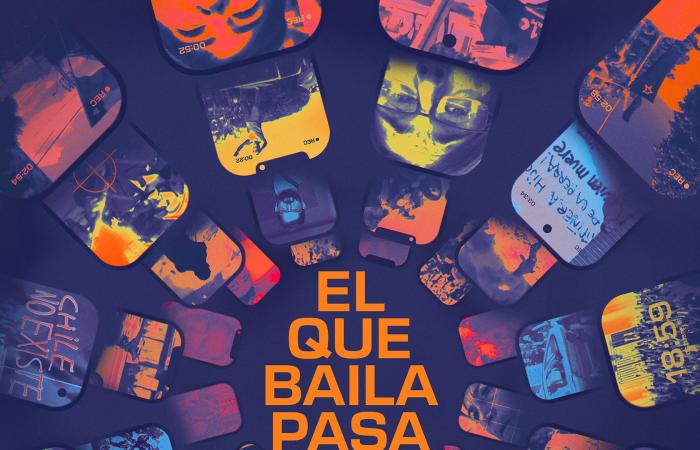This Thursday, “El que baila Pasa”, the documentary by filmmaker Carlos Araya Díaz, premiered.
The film observes with distance, irony and reflection the experiences of Chileans during the social outbreak, wandering between the drama, the absurd, the illusion and the failure that emerge from citizen records carried out during the 2019 demonstrations.
Through a mix of documentary, fiction and essay, Araya and co-producer María Paz González build the story of a being from beyond who returns to Chile during 2019 and is incarnated as a worker who dreams of a social outbreak.
Thanks to Miradoc, “He who dances passes” is available in theaters in Iquique, Antofagasta, Copiapó, Ovalle, Valparaíso, Los Andes, Santiago, Concepción, Valdivia, Puerto Varas, Puerto Montt, Coyhaique and Punta Arenas (search by city HERE).
“During the first weeks of the social outbreak, I was collecting the images that were appearing on social networks, without knowing very well if they were going to serve as a film or not,” Araya recalls.
“Sometime later I realized that in those records there was something more complex and more interesting than what one could do from professional cinema. In these records the imprint of these people became evident in terms of what they decided to record, whether or not their voices were included. There are many records in the film where people become a kind of chroniclers of what is happening, with different points of view as well.”
The film gives space not only to “central” registers, but also “to the side, for example, a fight appears between two neighbors in Lo Barnechea, there is a neighbor who tells him to go protest somewhere else, go to Maipú, there where they burn the potatoes, then the regional also appears in this film, the north and the south appear.”
In the case of the director, he lived through the outbreak in Santiago.
“I am from Calama, but I live in Santiago and I remember that day perfectly, I was with my daughter, I went to look for her in her garden, there was no mobilization, I had to cross the Alameda in my arms with her. Then a question of learning to be a father is mixed in there.”
In addition, the film allows us to look at certain works from the past of Chilean cinema, such as short films by Pedro Chaskel, there are fragments by Raúl Ruiz as well, “but also looked at from the aesthetics of social networks, that is, from the vertical frame.”
-
To find out more about what is happening in the world of science and culture, join our Cultívate community, El Mostrador’s Newsletter on these topics. Sign up for free HERE.





